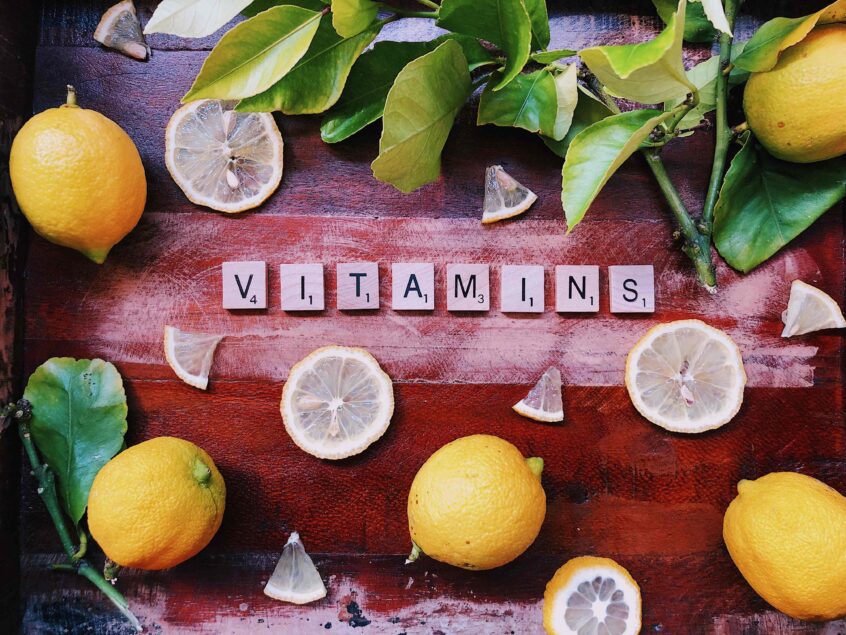Across the world, people take vitamins every single day. They’re collectively seen as good for us, and the healthcare industry is always emphasizing the importance of getting our daily dose of vitamins.
Although vitamins are good for our bodies and typically do not come with the same long list of side effects as medications, like anything, they can be dangerous if you consume too much of them. Contrary to what you may think, you can overdose on vitamins!
Zinc – An Example of Something Good Becoming Toxic
Zinc, for instance, is highlighted as one of the minerals to boost the immune system, however, too much zinc may cause negative side effects for overall health, specifically for those incorporating an AREDS2 supplement that includes zinc.
Throughout the prime of COVID, many consumers added a stand-alone zinc to their daily routine. For those already incorporating zinc into their diet as well as taking an AREDS2 supplement for their macular health, the additional zinc may have ended up causing problems rather than helping them. The National Institute of Health recommends a maximum (UL) of 40 mg of zinc per day to avoid any potential adverse health effects such as nausea, interference with certain antibiotics and antivirals, stomach pains, higher rate of UTIs & kidney stones, inhibit the absorption of iron and copper leading to anemia and neurological issues. Some AREDS2 supplements contain 80 mg of zinc.
According to Samuel Liu, MD, PhD, Princeton Eye Group, PA, “The AREDS2 study demonstrated the benefit of zinc as an important component to reducing the risk of AMD progression. However, it’s important to consider the daily amount of zinc ingested with respect to the risk of potential side effects. A formulation of 25mg of zinc provided identical protection compared with higher doses, yet reduces the odds of health risks from excessive zinc levels.”
A combination of stand-alone zinc supplements (typically containing 30 – 50 mg of zinc), a daily multivitamin (such as One-A-Day® Mens Multivitamin with 24 mg of zinc) and a patient taking 80 mg zinc level AREDS 2 is roughly 154 mg of zinc daily, almost 4x the upper tolerable intake level. Viteyes® AREDS2 products contain anywhere from 0 mg – 25 mg of zinc and are proven to be just as effective as competing products that contain high levels of zinc.
You Can Even Overdose on Vitamin D or Trending B Vitamins
Even vitamins which most see as harmless can be toxic in high quantities.
Vitamin D, “known to help the body absorb and retain calcium and phosphorus,” can cause a variety of health problems if taken in excess including subsequent calcium buildup, which could lead to painful symptoms like bone pain or even kidney issues.
B vitamins, which have been becoming increasingly popular, can become toxic if you ingest a gram or more a day. Vitamin B-3 could cause liver damage and/or high blood pressure; vitamin B-6 could lead to severe neurological symptoms; and Vitamin B-9 could negatively impact the immune system and even affect mental function.
And You Can Even Take Too Much Vitamin C
Vitamin C is taken by many people for its positive benefits, and although it isn’t generally problematic even if consumed in higher quantities, it can still cause some adverse effects if taken in excess amounts.
The recommended “highest” dosage for vitamin C is about 2,000 mg a day for adults, according to www.mayoclinic.org. The Mayo Clinic states that “although too much dietary vitamin C is unlikely to be harmful, large doses might cause diarrhea, nausea, vomiting, heartburn, stomach cramps or headaches.”
How To Avoid Toxic Levels of Vitamins
Like anything, consumers should be mindful of taking anything in large doses as it could potentially be dangerous. If you’re concerned about your vitamin intake, be sure speak with your healthcare professional.
